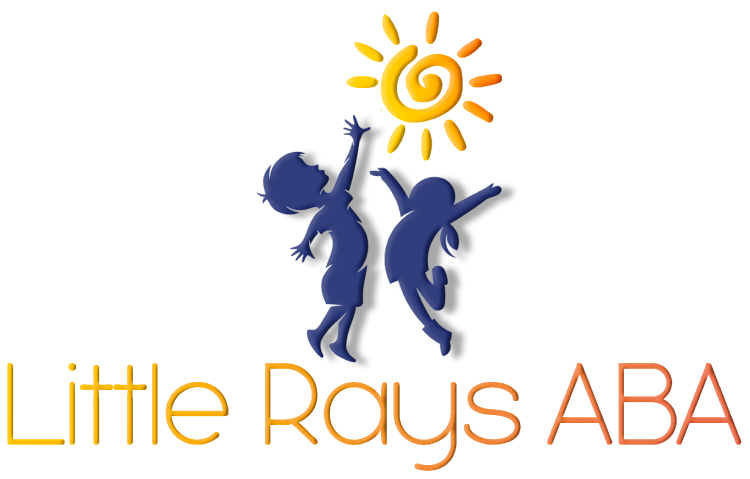How Having a Child with Autism Affects Family Dynamics
Bringing up a child with autism spectrum disorder (ASD) can change how a family works in many ways. Autism affects how a child communicates and behaves. It also touches the daily lives and feelings of family members. When families receive a diagnosis of autism, they may face challenges like psychological distress and social barriers. Still, this situation can also lead to growth. It can inspire parents, siblings, and caregivers to adopt supportive actions. These measures help create a strong and welcoming family environment.
Understanding Autism and Family Dynamics
Autism spectrum disorder (ASD) is a condition that affects how children develop. It covers a wide range, which leads to many different behaviors and needs. ASD impacts how a child interacts with others, communicates, and acts in daily life. For families, these differences create unique challenges. They often need to change their routines and caring approaches.
Family dynamics are affected as parents and siblings adjust to support the autistic child. With the right resources, understanding, and social support, families can build stronger relationships. They can also create a caring environment for their child on the spectrum.
What is Autism Spectrum Disorder?
Autism spectrum disorder (ASD) includes different neurodevelopmental conditions. These conditions can show in many ways among individuals. The spectrum covers differences in communication, social skills, and repetitive behaviors. Since autism is a spectrum disorder, no two people with autism are the same.
In the United States, about 1 in 59 children is diagnosed with autism spectrum disorder. Early signs of autism can show up in the first two years of life. These signs include limited eye contact, language delays, and repetitive behaviors. The severity of these traits can vary, which is why it’s called a "spectrum."
For families, it’s important to see autism as a unique and valid way of being. By using specific support strategies, families can highlight their child’s strengths and special abilities. This helps children grow well in both development and social situations.
How a diagnosis of autism reshapes family structure
A diagnosis of autism usually changes how families operate and interact with each other. Parents might need to focus more on certain therapies, school options, and caring duties, which can change their daily routines a lot.
This diagnosis can bring both challenges and chances for the family. One family member might step up to lead in caring, while others may handle money matters or offer emotional support. When families work together to share responsibilities, they strengthen their relationships. However, it’s important to have clear communication and understanding among each other.
At first, many families feel stressed or overwhelmed, but they can regain balance over time by asking for help, setting common goals, and changing their expectations. By creating an atmosphere of support and sharing responsibilities, family members can deal with the changes that come from the autism diagnosis more successfully.
Emotional Impact on Parents
Raising a child with autism spectrum disorder can be hard on parents. They often feel more stress, anxiety, and guilt. Balancing care for their child with self-care is a tough task.
Despite these challenges, parents can grow stronger and learn important coping skills. Those who have social support, therapy, and good resources often feel more equipped to handle their emotions. This can help improve family dynamics for everyone involved.
Coping with the initial diagnosis
The first autism diagnosis can bring many feelings, from confusion to stress. Parents often feel overwhelmed as they learn new terms, treatments, and what is expected of them. This time can greatly affect their mental health.
During this time, joining autism support groups or meeting other parents in similar situations can be very helpful. Sharing stories can make parents feel less alone, which is important after an autism diagnosis. Talking with a counselor or therapist can also help parents deal with the stress they feel.
It's also important to change expectations. Focusing on the strengths and unique traits of the autistic child can help create a positive attitude. Support tools, like therapy and parent-training programs, help caregivers feel more confident and reduce stress at home.
Long-term emotional considerations for parents
Over time, parents of autistic children often deal with maternal stress, worries about their quality of life, and the need for financial security. They feel stress from balancing caregiving duties, work, and planning for their child’s future.
Mothers are often the main caregivers. This can cause feelings of loneliness and tiredness. These problems can get worse if they don’t find ways to handle their emotions. Mindfulness practices and regular counseling sessions can help improve their emotional well-being.
Planning for money is important to ensure the child’s future. By working with financial advisors who know about special needs, parents can manage long-term worries and lower their stress. Taking care of themselves is also vital. Parents who focus on their own emotional health can better cope with the challenges of raising an autistic child.
Sibling Relationships and Dynamics
Siblings of children with autism face a special family situation that can bring different feelings. They might struggle with things like not getting enough attention from their parents or dealing with different behaviors. However, these challenges can also help them grow as individuals.
To keep things balanced at home, parents should make sure siblings feel listened to and supported. They can promote talking openly about feelings and set up activities that siblings can enjoy together. This helps build stronger relationships between siblings and creates a family space that is more caring and understanding.
Challenges faced by siblings of autistic children
Sibling relationships can face pressure because of the special needs of an autistic family member. Some challenges include:
- Feeling ignored while parents give more attention to the autistic child.
- Having fewer social activities because of the family's rules or care needs.
- Dealing with feelings of frustration or embarrassment in social situations.
Many siblings have behavioral problems and feel confused emotionally. They might struggle with guilt or resentment towards their autistic sibling but often do not share these feelings. They worry about adding stress on their parents.
To help deal with these challenges, families should focus on open communication and spend quality time with their non-autistic children. Talking with a counselor and joining sibling support groups can create safe places to express feelings and build strong sibling bonds.
Positive impacts and growth opportunities for siblings
While there are challenges, siblings of autistic children often grow a lot as people. They become more sensitive and have more empathy while trying to understand their sibling’s special way of seeing things.
Being a part of their autistic sibling’s world helps them build stronger social connections and be more resilient. They also learn important life skills. These include problem-solving and adaptability, which help in their interactions with others.
The benefits can last into adulthood too. Siblings often say they feel closer to their family. When families create a supportive and inclusive environment, they can build on the many strengths found in sibling relationships.
Marital and Partnership Challenges
Navigating family life can be tough. This is especially true when caring for an autistic child. Couples often face challenges in their relationship. Different ways of handling the child’s needs can create strain. Partners might also deal with mental health issues, making things harder. Miscommunication adds to the problem. This can cause feelings of being alone and frustrated.
Many couples feel a lot of stress as they deal with the impact of autism on their family dynamics. To improve their relationship, partners can benefit from open talks and targeted parent training. This can help them come together to support each other. It creates a stronger bond as they tackle the ongoing challenges that come with having an autistic child.
Communication barriers and resolutions
Effective communication can be hard for families with an autistic child. There may be issues with social interaction. This includes trouble with eye contact and understanding non-verbal cues. These problems can create misunderstandings and frustration. This can affect the emotional health of the entire family.
To tackle these issues, using special communication methods is important. Parents of children on the autism spectrum can join parent training programs. These programs can help improve understanding among family members. Tools like visual aids and social stories can help make things clearer. Getting involved in online groups or support networks can also help caregivers. It allows them to share experiences and improve conversations within the family.
Maintaining relationship strength amidst challenges
Facing the challenges of raising a child with autism requires strong commitment from parents. Couples often find that regular communication is key to understanding and dealing with difficulties. By talking openly about feelings and creating plans together, parents can strengthen their relationship even with the pressures that come from an autism diagnosis.
Doing activities together can also help improve their connection. Whether they go to therapy appointments or join support groups, these experiences allow couples to understand each other’s struggles better and grow stronger together. Such supportive moments can reduce psychological distress and encourage a sense of togetherness, helping family dynamics stay strong during tough times.
Social Interactions and External Relationships
Navigating social situations can be tough for families with an autistic child. Autism spectrum disorder brings unique challenges that change family life. This can affect relationships with friends and extended family. Social activities may need adjustments to meet sensory needs or behavior. As a result, parents of children with autism may feel lonely.
Extended family often does not know how to interact well with an autistic child. This can cause misunderstandings. Seeking help through online groups is useful. These groups offer support and connect families with similar experiences. In the end, they help strengthen family ties and improve social support during tough times.
Changes in social life for the family
Social life can change a lot when a family has a member on the autism spectrum. Parents may find it hard to take part in traditional social activities. Sensory overload and behavioral problems can make these outings challenging. This means family outings may need extra planning or might not happen as often. This can affect the quality of life for everyone in the family.
Caregivers often look for social support through online groups or local communities. They want to share their experiences and connect with others who face similar challenges. This change impacts old social activities but also drives families to create new ones. These new activities can align with their child's individual goals and needs.
Dealing with stigma and misunderstanding
Navigating the challenges of autism can be tough for families. Many people don't understand autism spectrum disorders, which can lead to social isolation and wrong ideas about autistic behavior. Caregivers, especially mothers of children with autism, often feel pressure from society's judgment. This can increase their maternal stress and hurt their mental health.
Creating social support networks is very important to help deal with these issues. Families often find comfort in online groups where they can share their experiences. This helps them understand each other and feel less alone. By educating the community, families can change how people see autism. This can lead to more acceptance and better support for their autistic child and overall family dynamics.
Financial Considerations and Planning
Financial planning for families with an autistic child can be tough. There are often unexpected costs that add stress to family life. These costs include special healthcare, therapy, and support services, and they can change a lot based on what the child needs. Parents often feel worried as they try to take care of their child while balancing work and other duties.
Planning for financial stability in the long run adds more challenges. Families can look into options like government assistance, community help, and funding for education. By planning wisely, families can reduce some of the financial strain and improve their overall quality of life.
Costs associated with healthcare and therapy
A variety of costs come up when taking care of a child with autism spectrum disorder. Healthcare costs can include regular visits to specialists, ongoing therapies like occupational therapy, and assessments. These expenses can add up over time. For many families, this financial strain can cause stress and affect their family dynamics.
Along with healthcare expenses, therapy fees, especially for developmental support and training programs, increase the financial impact. Parents of children on the autism spectrum often look for different resources and help. This shows the need to understand all the expenses that affect the quality of life for the entire family.
Planning for long-term financial security
Ensuring long-term financial security is a unique challenge for families with an autistic child. The ongoing costs for healthcare, therapies, and special education can be high. This often puts pressure on family budgets. Parents need to carefully look at their finances. They should consider options like specialized insurance plans and government help for families of kids with developmental disorders.
Getting a financial planner who knows about these areas can help create a long-term plan. Setting up trust funds can also give security for the child’s future. The goal is to reduce stress and provide stability. This way, the family's quality of life stays good as things change.
Educational and Developmental Support for the Child
Navigating the education system for a child with autism spectrum disorder means knowing about different resources. Parents often look for educational choices that fit their child's unique needs. They focus on personalized learning plans. Programs like occupational therapy and social skills training are key to improving the child's quality of life. These programs help the child become more independent.
Working closely with teachers is very important. This ensures that the strategies match the child's individual goals and growth milestones. They should also include chances for social interaction. This way, children with autism spectrum disorder can connect with their peers and family. It helps them strengthen their social skills and build better relationships.
Navigating educational options
Finding the right education for a child with autism spectrum disorder (ASD) can be hard for families. This process needs them to know different learning styles and what their child needs. Parents might need to work with different support systems. These can include Individual Education Plans (IEPs) and special schools that help kids with developmental disabilities.
Working together with teachers and therapists helps families create a learning plan that meets the child’s individual goals. Joining online groups or using community resources can give important tips. This helps build a strong support group to handle the challenges of education for children on the autism spectrum.
Importance of tailored developmental programs
Tailored programs are very important for improving the quality of life for children with autism spectrum disorders. Individual plans focus on each child’s special strengths and challenges. This helps parents see how their child is progressing while also helping with specific developmental disabilities. Programs like occupational therapy and social skills training build important skills, enabling each child to reach their goals.
These programs also support whole families. They create chances for families to connect and share experiences. Understanding how autism affects family dynamics is key. Modified programs can greatly reduce maternal stress and improve social interactions. This helps strengthen relationships and build resilience in the family.
Conclusion
Parenting an autistic child changes how a family works. It requires adjustments that can either bring family members closer or cause stress and tension. This stress often comes from dealing with behavior challenges and figuring out social support. It is very important to understand what each family member needs. This understanding helps the family be strong and keeps their relationships healthy, even with the difficulties of autism spectrum disorder.
At Little Rays ABA, we understand how having a child with autism can impact family dynamics in unique ways. Our expert team is dedicated to providing tailored ABA therapy that not only supports the child but also strengthens the family as a whole. We believe in working alongside parents and caregivers to create a harmonious environment where every family member thrives. If you're looking for compassionate support and effective therapy, reach out to us today and let us guide your family toward positive growth.
Frequently Asked Questions
How can families improve their coping strategies?
Families can improve how they cope with challenges by talking openly, getting help from community resources, and trying family therapy. Setting up routines and taking care of themselves are also very important. This helps them stay strong emotionally while dealing with the difficulties that come with autism.
What support systems are crucial for families dealing with autism?
Support systems like local autism support groups, mental health professionals, and educational advocates are very important for families. They help with communication and provide emotional support. These resources assist in handling challenges related to autism. This way, families can feel connected and strong throughout their journey.
What are some common challenges families face when raising a child with autism?
Families raising a child with autism often deal with problems like trouble communicating, emotional stress, and feeling alone socially. They might also face negative views from others. On top of this, financial issues linked to healthcare and education can put strain on family dynamics and relationships.
Related Posts





